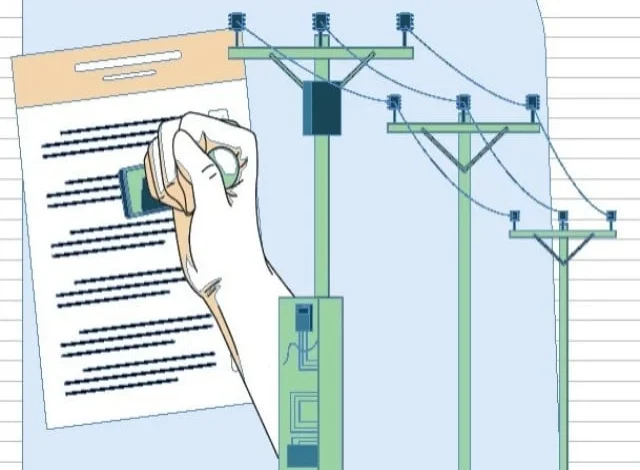Approval granted for a 7-year tariff plan for KE.

The National Electric Power Regulatory Authority (NEPRA) has sanctioned the seven-year Multi-Year Tariff (MYT) for K-Electric’s supply operations, encompassing the timeframe from FY2023-24 to FY2029-30. The resolution ensures enduring pricing stability and permits K-Electric (KE) to implement its $2 billion investment strategy focused on strengthening service quality, minimising losses, and improving grid dependability.
NEPRA has sanctioned KE’s average power supply pricing at Rs39.97 per unit under the Multi-Year pricing for the designated period. The prior interim tariff, established under the last Multi-Year Tariff (MYT), remained in place until March 2023 at a rate of Rs33.82 per kilowatt-hour (kWh).
The new MYT synchronises KE’s supply tariff schedule with its generation, transmission, and distribution sectors, thus enhancing regulatory control and increasing investor confidence. NEPRA’s ruling permits KE to recuperate justified expenses associated with fuel, electricity acquisitions, transmission and distribution, operations and maintenance (O&M), and working capital, incorporating explicitly delineated procedures for monthly and quarterly modifications. KE had sought a tariff of Rs44.69/kWh; however, NEPRA sanctioned Rs39.97/kWh.
A salient aspect of the decision is NEPRA’s endorsement of KE’s proposal to recuperate efficiency losses, employing a pragmatic trajectory for recovery enhancements — from 92.76% in FY2024 to 95.48% by FY2030. The authority has also approved the actualisation of sent-out and billed units, to be adjusted annually to reflect economic and operational realities, consistent with the treatment given to other distribution companies (DISCOs). This modification aims to align KE’s supplier tariff model with the industry’s revenue-cap framework.
KE requested authorisation for a working capital cost of Rs2.071/kWh, totalling Rs33.1 billion, predicated on an overall working capital necessity of Rs132.95 billion. KE observed that a significant percentage of this value is presently encumbered in receivables from governmental bodies, encompassing Tariff Differential Subsidy (TDS) claims, outstanding power bills from public sector clients, and tax reimbursements. Nevertheless, these receivables were excluded from the current request, as KE is addressing their settlement independently with the government.
NEPRA approved the calculation of working capital costs using a 3-month KIBOR rate plus a capped spread of 1%, which will be reduced if the actual spread is lower. The sanctioned working capital requirement for FY2023-24 is predicated on the amended and permitted expenses for electricity acquisitions, transmission, distribution, and supply margins.
KE anticipates that sent-out electricity will increase annually at a compound growth rate of 2.6%. This growth will be adjusted based on actual data starting from FY2023, allowing the company to account for any over- or under-recovery of costs. Sent-out units are projected to reach 21,617 GWh by FY2030, up from 18,660 GWh in FY2024.
Distribution charges are estimated at Rs61,385 million, based on a base tariff of Rs3.84/kWh as requested in KE’s distribution petition for FY2024 to FY2030. However, NEPRA approved a lower rate of Rs3.31/kWh. KE had also requested transmission charges at Rs2.99/kWh, which have now been linked to the Monthly Demand Index (MDI) as notified by NEPRA.
For Operations & Maintenance (O&M), KE had requested Rs6,758 millionequivalent to Rs0.42/kWhbased on projected billed units for FY2024. After excluding discretionary or non-essential costs, NEPRA approved a total O&M cost of Rs31,963 million for FY2023-24. This includes Rs26,052 million for distribution and Rs5,911 million for supply. NEPRA also noted that KE’s actual supply O&M cost of Rs5,911 million was lower than the projected Rs5,926 million based on indexed data from FY2022-23.
NEPRA has instructed KE to ensure an uninterrupted electricity supply and to use recovery-related adjustments responsibly. The regulator will enforce strict performance monitoring, including service quality benchmarks such as the System Average Interruption Frequency Index (SAIFI) and the System Average Interruption Duration Index (SAIDI).
This move marks a significant step toward ensuring a predictable and stable power regime for Karachi and its adjoining areas. It is expected to enhance consumer trust while enabling critical infrastructure upgrades by Pakistan’s only vertically integrated private utility.